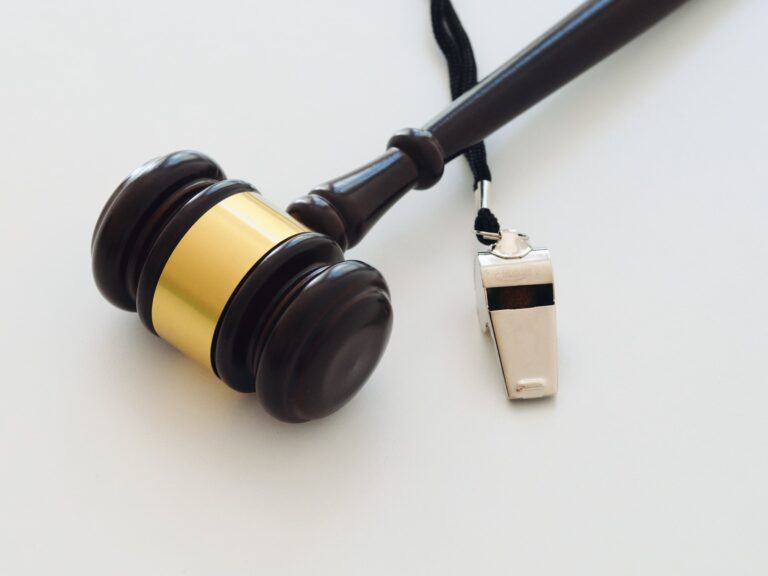
Andrew Strom is a union lawyer based in New York City. He is also an adjunct professor at Brooklyn Law School.
This spring, the Supreme Court will hear a case, Cedar Point Nursery v. Hassid, challenging a forty-five year old California regulation that gives union organizers limited access to growers’ private property to talk to farmworkers during non-work time. Access matters because there are no public sidewalks adjoining the fields and farmworkers are typically transported to the property on vehicles provided by their employer. Employers challenged the rule when it went into effect, and in 1976, the Supreme Court dismissed the case “for want of a substantial federal question.” Yet now, the right-wing majority on the Court is apparently considering the idea that this grant of access constitutes a “taking” under the Fifth Amendment and the State of California must compensate the growers.
The petitioners in this case are two California agribusinesses. One employs 500 farmworkers and the other has around 2,500 employees in its field operations. They have staked out an extreme position, arguing that any time a state limits a property owner’s right to exclude individuals from its property, the state must compensate the property owner. The Chamber of Commerce and the Trump Administration have acknowledged that the government often infringes on this right to exclude, and they both struggled to explain how the Court could rule for the growers without upending too much settled law. Trump’s Solicitor General asked the Court to acknowledge that “[a]ll property is held subject to certain core exercises of the police power, like law enforcement searches and health and safety inspections.” The Chamber of Commerce likewise concedes that the government may inspect property “to ensure product or workplace safety.” This right is quite broad – the Chamber’s brief mentions federal inspections of meat processors, pharmaceutical factories, pesticide manufacturers, and power plants. The Occupational Safety and Health Administration can inspect workplaces without probable cause; local health departments inspect restaurants, nursing homes and child care providers; and fire departments inspect buildings.
Governments routinely infringe on the “right” to exclude in other ways. Before the Civil Rights Act was passed, hotel and restaurant owners in many states were free to exclude Black people from their premises. When a motel owner argued that the law effected a taking in violation of the Fifth Amendment, the Supreme Court summarily rejected the claim. Likewise, for one-hundred years, the Court has held there is no taking when landlord-tenant laws prevent a property owner from evicting an unwanted tenant. Anytime a law limits an employer’s right to fire an employee and authorizes reinstatement as a remedy, the state has once again limited the right to exclude. States do not compensate property owners when they send surveyors to decide where to place a road, unless the state decides to acquire the property. The Supreme Court held there was no taking when California told shopping mall owners they needed to allow individuals to engage in speech on their property that the owners oppose. And, for eighty years, the Court has held that under the National Labor Relations Act, employers must provide access to union organizers in some circumstances.
The Chamber and Trump’s Solicitor General offer unconvincing explanations for why compensation is owed here, but not in these other examples. The Chamber states that access granted for government health and safety inspections is different because requiring access for government inspectors represents a “germane condition on market participation.” But the same is true here. When the California legislature enacted the Agricultural Labor Relations Act (“ALRA”), it decided that it was beneficial to the State to give farmworkers the right to organize. And the agency set up to enforce that law decided that giving organizers an opportunity to go to the fields before and after work was an appropriate way to ensure that farmworkers understood their rights under the Act. The petitioners and the Chamber of Commerce may disagree with that judgment, but the grant of access relates directly to the petitioners’ decision to use their property to employ farmworkers.
The Chamber further argues that government inspections are different because they are governed by the Fourth Amendment’s limitations on searches and seizures. Of course, there’s no rule that each government activity is only regulated by a single Amendment. Moreover, the Supreme Court has held that no warrant is required for law enforcement officials to inspect “open fields,” the type of property at issue in this case. If the government can send its agents into open fields at any time in search of contraband without compensating the property owner, that seems like strong evidence that the Fifth Amendment was not intended to address a scenario where the government authorizes closely regulated access to open fields.
The Trump Administration argued there is a difference between a state limiting a property owner’s ability to remove an individual who the owner had initially invited onto the property (e.g. a tenant or employee) versus a state limiting right to exclude in the first instance. But it’s not clear why this distinction should matter for the takings clause. If the government must compensate a property owner for infringing on the right to exclude, why wouldn’t compensation be owed in both instances? Didn’t the founders recognize the right to kick someone off your property after you allowed them on?
The Solicitor General acknowledges that no compensation is required when the government takes access for “law-enforcement activities.” But why shouldn’t a state be allowed to extend access to a private party if the State decides that is the best way to enforce a regulatory scheme. Consider a law mandating that employers provide annual on-site training to their employees on sexual harassment given by a State-approved provider. Or a law requiring a homeowner to get a report from a State-certified inspector before they can sell their house. Would these become takings simply because access is granted to private parties?
The Chamber and the Trump Administration insist that this case differs from precedents authorizing access to union organizers under the NLRA because those cases only provide access where there is no other reasonable means for union organizers to communicate with workers. Leaving aside their failure to address a 1940 case where the Court held that an employer must grant access to a union where it has allowed access for a rival union, they fail to explain why this difference is relevant. After all, if the government decided that the only reasonable place to put a road was directly through my property, I would still be entitled to just compensation.
When I sat down to write this, I thought about warning that the right-wing Justices would use this case to “turn back the clock.” But, then I realized that there was never a time when the Fifth Amendment applied to this type of limited access. The petitioners refer to the organizers’ access as an easement, but they have not pointed to any examples of easements that can be unilaterally extinguished by a property owner if the owner chooses to use the property differently. Given this Court’s track record on matters pitting labor against capital, it’s a good bet that the agribusiness interests will prevail here. But it’s hard to see how the Court could justify such an ahistoric concept of Fifth Amendment rights.










Daily News & Commentary
Start your day with our roundup of the latest labor developments. See all
March 3
In today’s news and commentary, Texas dismantles their contracting program for minorities, NextEra settles an ERISA lawsuit, and Chipotle beats an age discrimination suit. Texas Acting Comptroller Kelly Hancock is being sued in state court for allegedly unlawfully dismantling the Historically Underutilized Business (HUB) program, a 1990s initiative signed by former Governor George W. Bush […]
March 2
Block lays off over 4,000 workers; H-1B fee data is revealed.
March 1
The NLRB officially rescinds the Biden-era standard for determining joint-employer status; the DOL proposes a rule that would rescind the Biden-era standard for determining independent contractor status; and Walmart pays $100 million for deceiving delivery drivers regarding wages and tips.
February 27
The Ninth Circuit allows Trump to dismantle certain government unions based on national security concerns; and the DOL set to focus enforcement on firms with “outsized market power.”
February 26
Workplace AI regulations proposed in Michigan; en banc D.C. Circuit hears oral argument in CFPB case; white police officers sue Philadelphia over DEI policy.
February 25
OSHA workplace inspections significantly drop in 2025; the Court denies a petition for certiorari to review a Minnesota law banning mandatory anti-union meetings at work; and the Court declines two petitions to determine whether Air Force service members should receive backpay as a result of religious challenges to the now-revoked COVID-19 vaccine mandate.